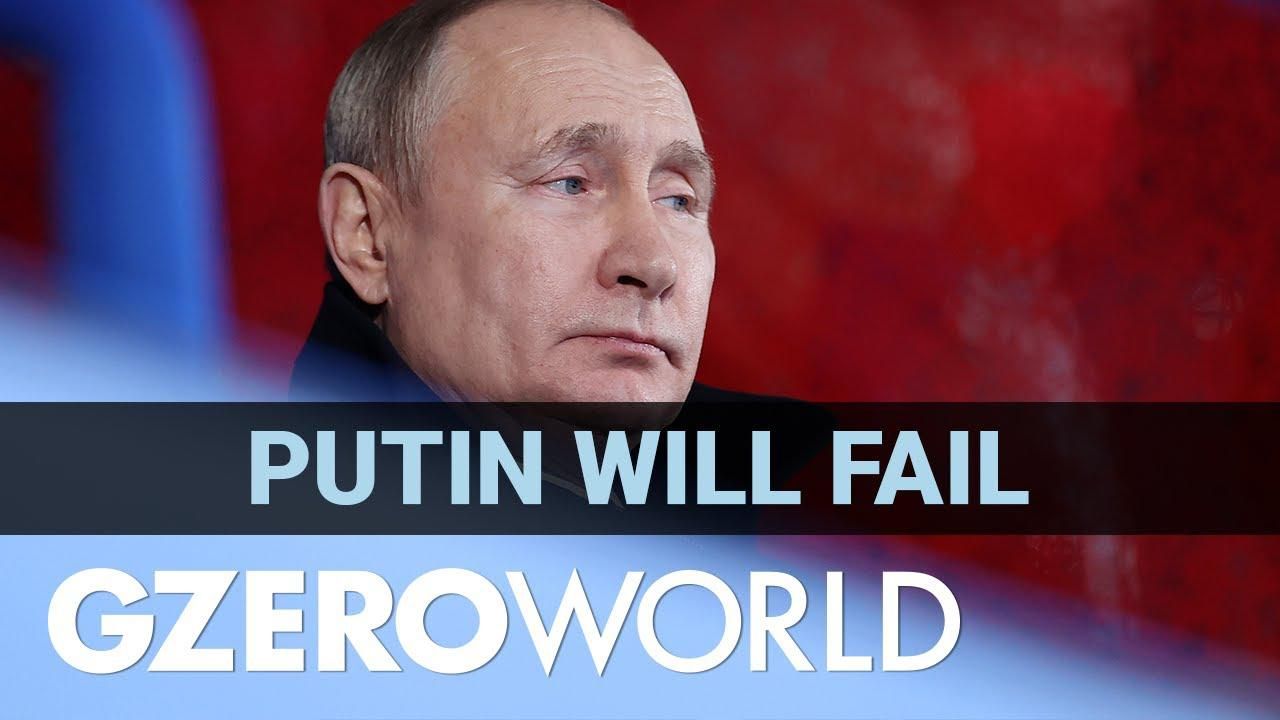
We're proud to announce that GZERO has won the Silver Telly Award for general political commentary for this episode of GZERO World with Ian Bremmer (which was originally published online March 21, 2022.)
The West is already at war with Russia.
NATO boots may not be on the ground, but the US and its allies are helping Ukraine with arms and cash, and by upping the pressure on Moscow with tough sanctions. Vladimir Putin knows this, but he's fighting a 20th-century war in 2022 — and losing on global PR and social media.
Meanwhile, the ripple effects of the conflict are spreading well beyond Ukraine's borders. And one country watching very closely is Finland.
On this episode of GZERO World, Ian Bremmer talks to former Finnish PM Alexander Stubb, who explains why his country has gone from longtime neutral actor to NATO hopeful.
Stubb — who once helped broker Russia's 2008 cease-fire with Georgia — believes Putin has backed himself into a corner and won't back down on Ukraine. He also thinks we shouldn't overestimate China's appetite to deal with an increasingly isolated Russia: at the end of the day Beijing doesn't want to be Moscow's mule.
Bonus: a tale of two train stations in Berlin and Kyiv.
- Putin has "mummified" Russia: Ivan Krastev on the Putin effect ›
- Russian unpredictability & Finland's border threat ›
- Finland heads to the polls ›
- Russia has pushed Finland towards full NATO membership: former Finnish PM Alexander Stubb ›
- Will Putin invade Ukraine? - GZERO Media ›
- Putin, Ukraine, and the Rat Story - GZERO Media ›
- Is Putin still Soviet? Wrong question - GZERO Media ›
- China is wary of supporting Russia: Finland's former PM Alexander ... ›
- Podcast: Why Putin will fail: former Finnish PM Alexander Stubb ... ›
- Russia-Ukraine war: How we got here - GZERO Media ›
- Russia-NATO confrontation is coming: Putin will escalate - GZERO Media ›
- Putin punishes Ukraine to avoid looking weak - GZERO Media ›
- Putin’s war crimes solidify West’s military support for Ukraine - GZERO Media ›
- Putin's tragic genius: war crimes & isolated Russia - GZERO Media ›
- Podcast: Davos, meet humility: grappling with Russia & egregious violations of international law - GZERO Media ›
- The Autocrat's Curse - GZERO Media ›
- "Patriots" on Broadway: The story of Putin's rise to power - GZERO Media ›